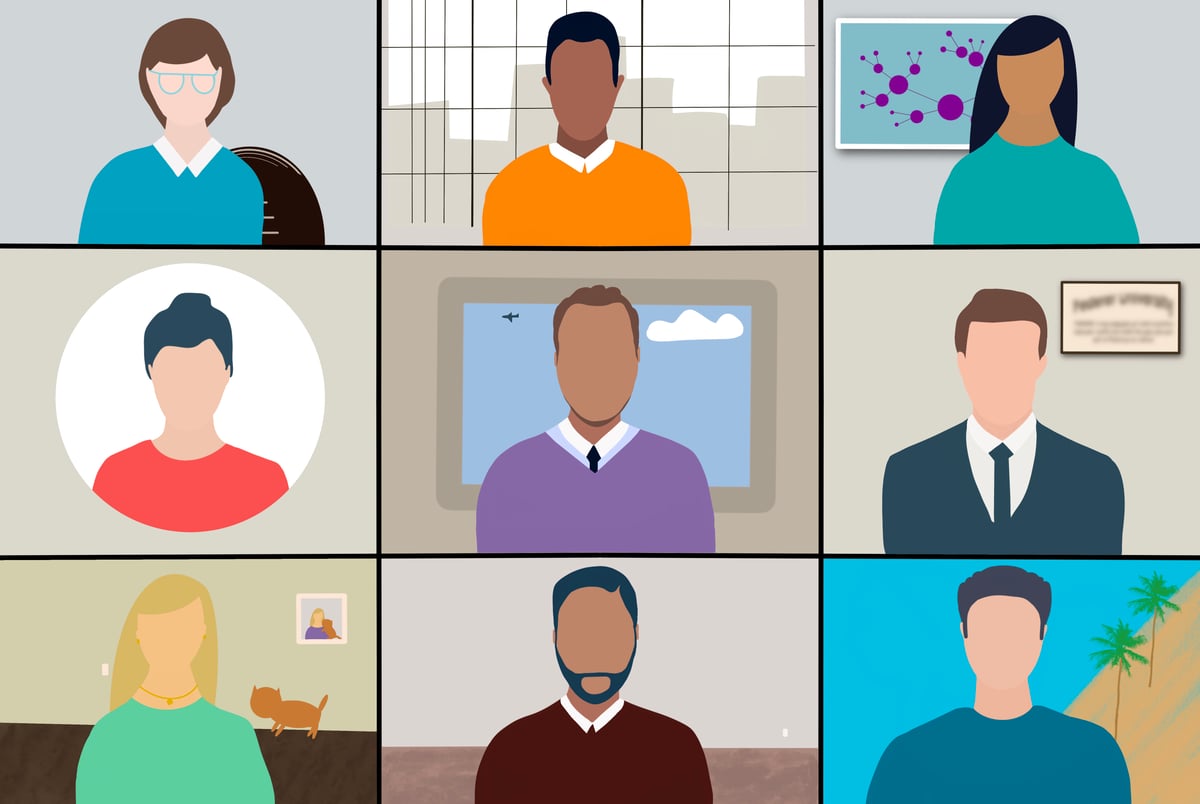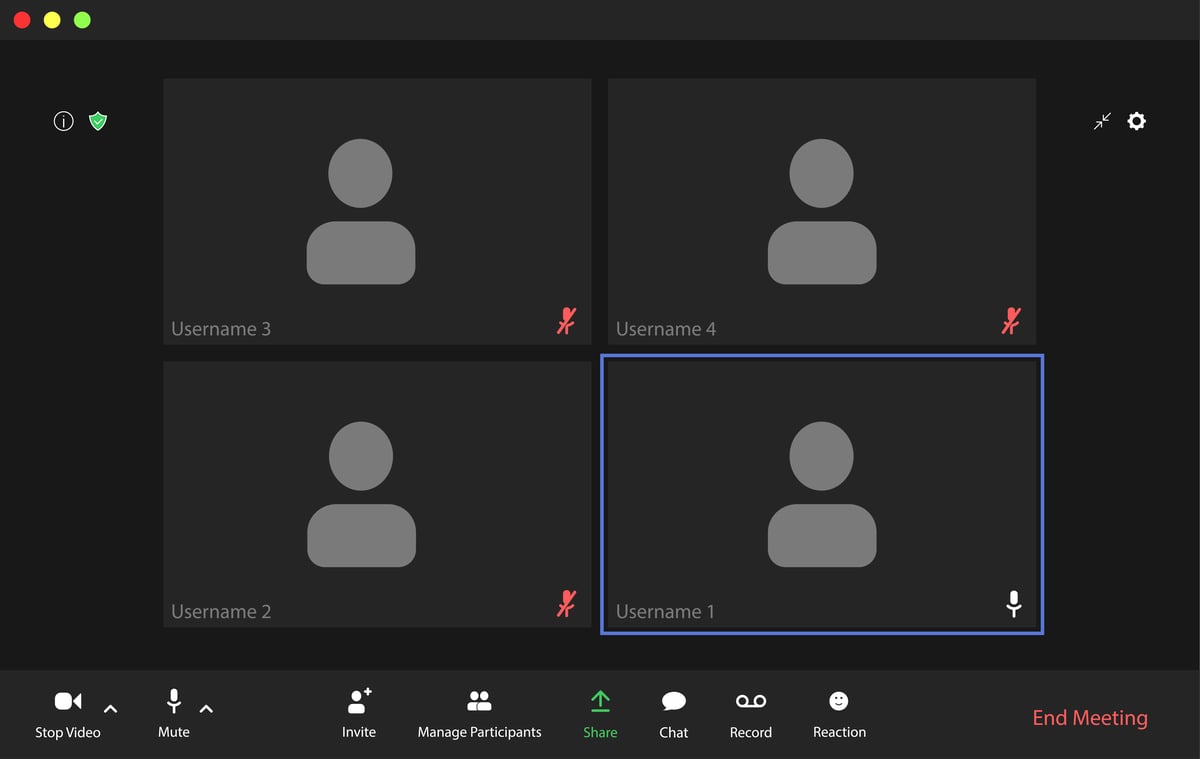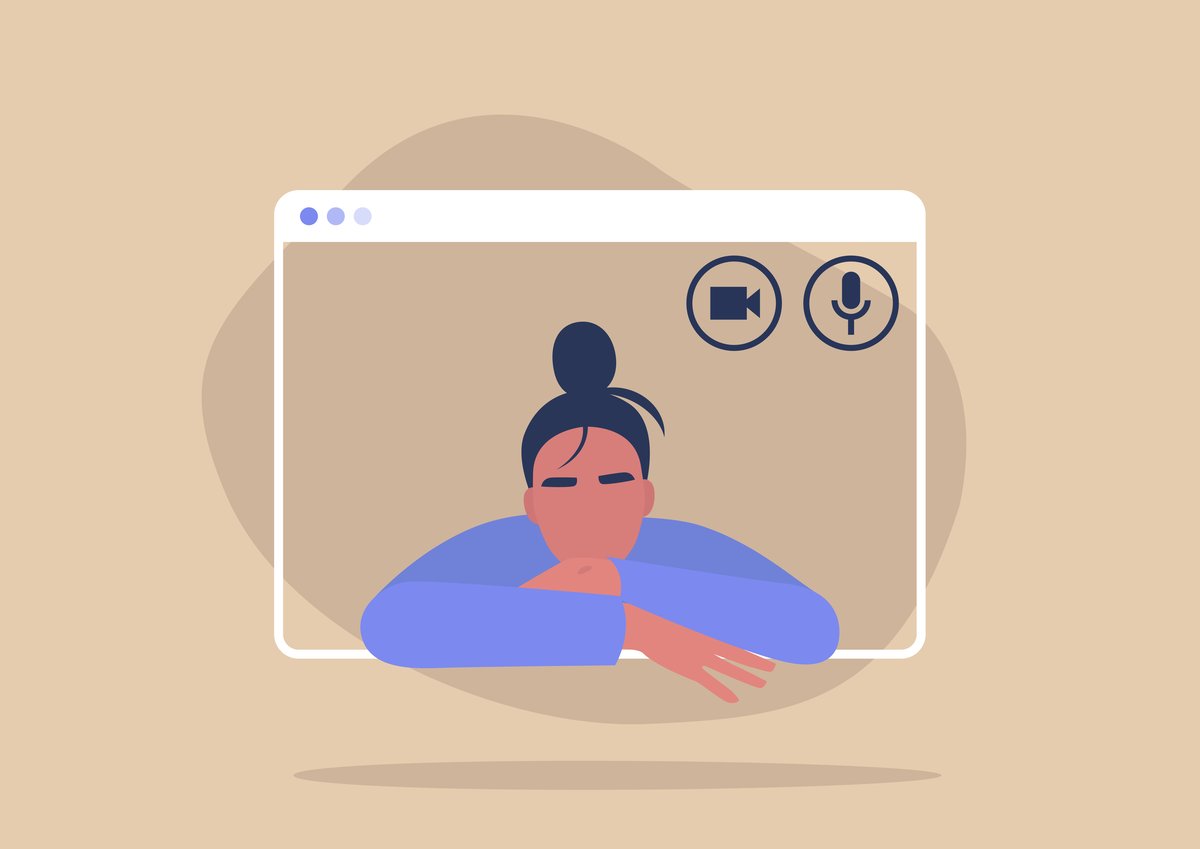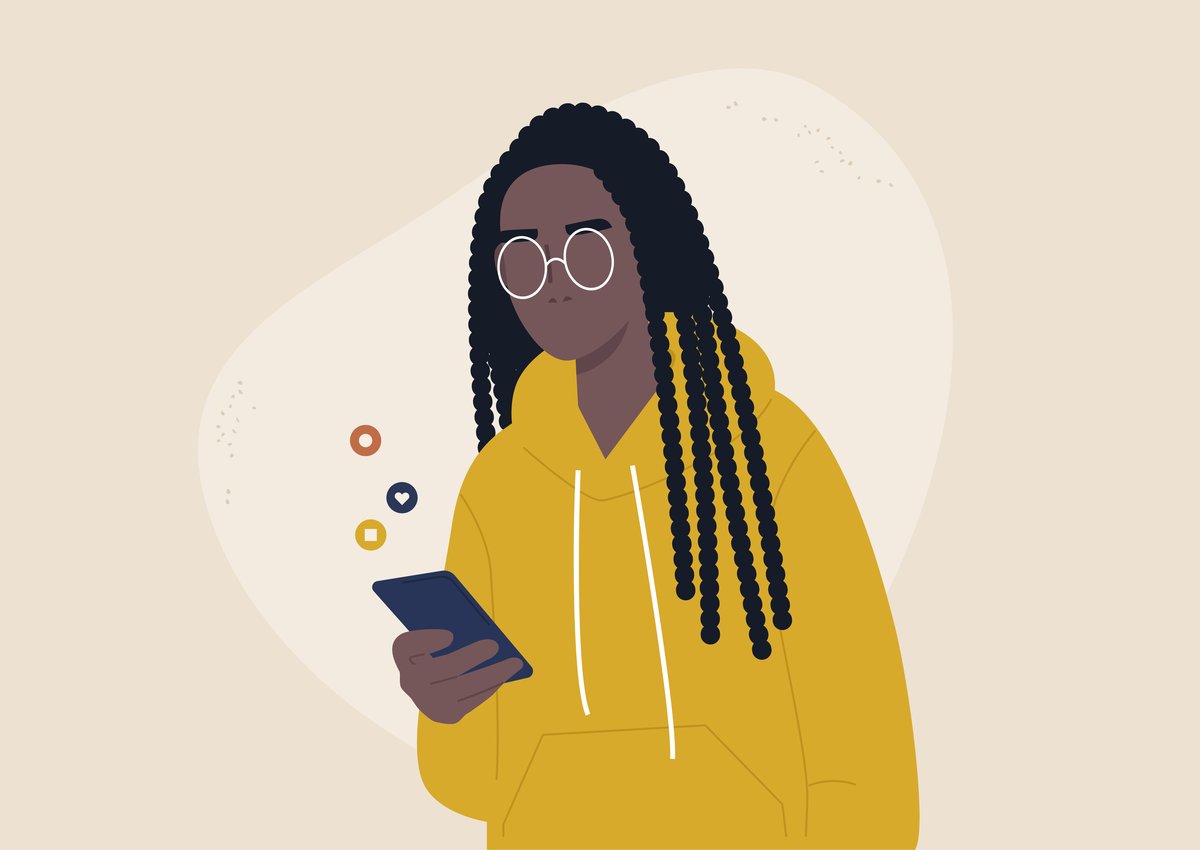
Most Zoom calls go something like this: Your manager talks for 45 minutes. You stare at your own face for 40 of them.
My under eye circles are insane. Is it the light? Maybe it's the light. Ugh, I have so many pimples on my chin. Omg WHY DO I HAVE SO MANY CHINS?
It's all of us right now. And we can't look away. Yet we don't have a choice.
Watch: I asked "The Doll Maker" what she'd do to my face. Post continues below.
And it's the driving force behind a worrying new phenomenon - one that's occurring in many countries, particularly in those that have experienced extended lockdown periods.
It's called 'Zoom dysmorphia'.
It's basically the new version of 'Snapchat dysmorphia' - a term that was coined in 2015 to describe the growing numbers of people who wanted to look like they had a face filter on IRL - big eyes, sparkling skin, the whole deal.
In a similar vein, Zoom dysmorphia refers to having a negative and distorted perception of one's self after prolonged time spent on video calls.
Read: Staring at our own faces on a screen all day, every day is wreaking major havoc on our self-esteem.





Top Comments